Before English settlers arrived in New England, the land was inhabited by multiple Indian tribes. These Indian tribes formed a confederation that rivaled the Iroquois.
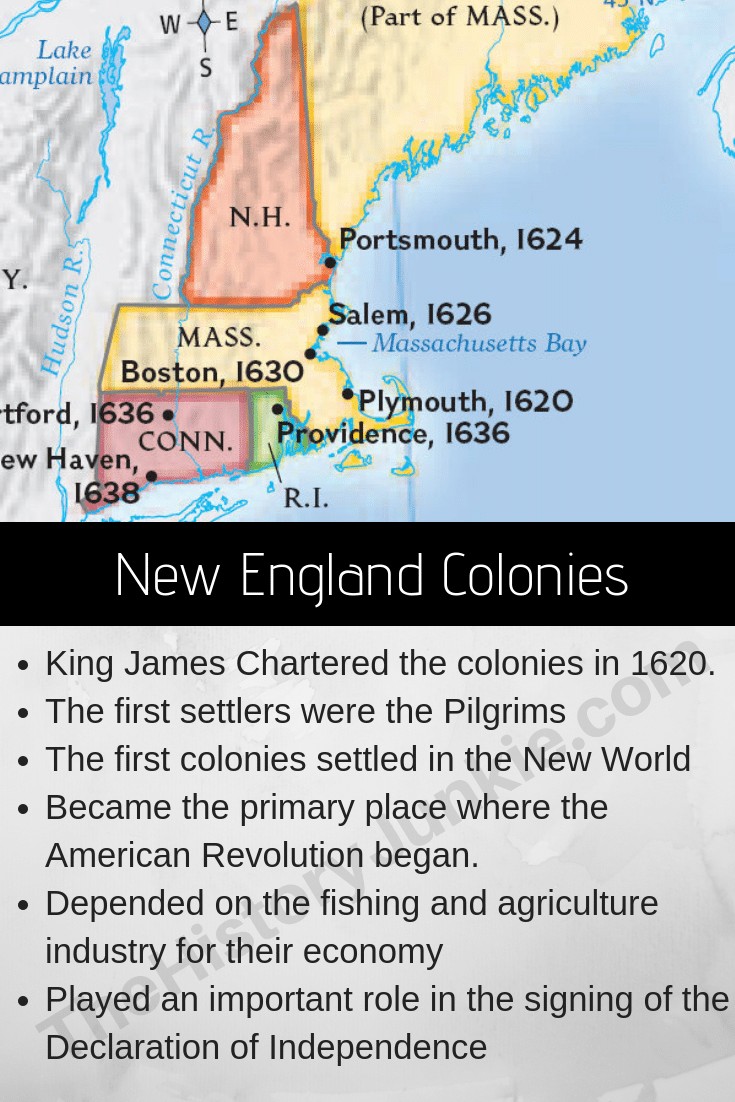
When the English settlers began to arrive, some of these tribes would become hostile toward them, and others would aid them.
King James would Charter New England in 1620.
New England was first settled by the Pilgrims. Shortly after the Mayflower, the Puritans settled in Massachusetts Bay.
Massachusetts Bay became the most influential colony in New England. Rhode Island, Connecticut, and New Hampshire can trace their beginnings back to it.
New England's main source of commerce was its fish and timber. Whales were common up the coast and became a valuable resource for the colonies.
Timber was often exported back to England, and furs were sold. By the time of the American Revolutionary War, New England had become a wealthy haven for merchants.
Some of the major events of the American Revolution took place in the New England Colonies. These include Paul Reveres Ride, The Battle of Lexington, The Battle of Concord, The Battle of Bunker Hill, and the Capture of Fort Ticonderoga.
New England was the platform on which the rebellion ignited. It was the home of many influential characters in this drama.
Men and women such as Paul Revere, Samuel Adams, William Dawes, John Adams, Abigail Adams, James Otis, and 14 of the 56 Declaration of Independence signers.
Massachusetts Bay Colony
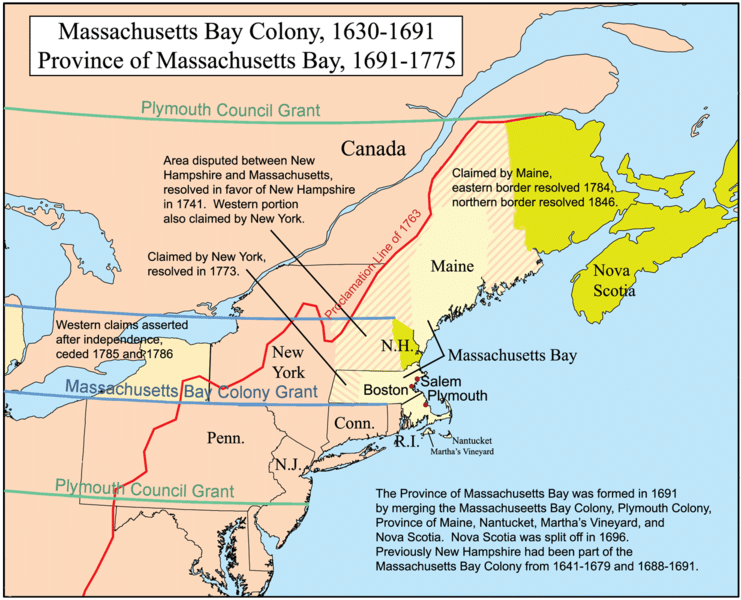
Massachusetts Bay Colony Was established in 1629 by the Puritans, who were led by John Winthrop. It was the most successful and influential colony in New England.
The Salem Witch Trials also took place in Massachusetts, which led to the death of over 20 people.
Massachusetts Bay also became the opening act of the American Revolutionary War when the Minutemen repelled a British offensive attack in the Battle of Lexington and Concord.
It was also the home of John Adams, Samuel Adams, John Hancock, Joseph Warren, and Paul Revere. All of whom became pivotal characters during the war.
Connecticut Colony

Connecticut Colony was founded by Thomas Hooker in 1636, just seven years after the founding of Massachusetts.
This is a direct offshoot of the Massachusetts Bay Colony and the home of Roger Sherman, Oliver Wolcott, Samuel Huntington, and William Williams.
New Hampshire Colony
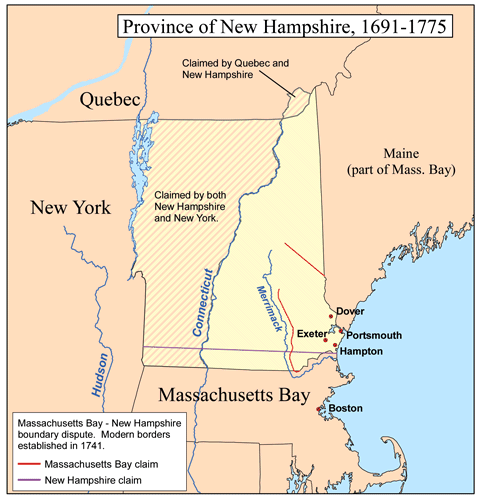
New Hampshire Colony was founded by John Mason but was established around 1691. New Hampshire took the longest of all the New England colonies to develop.
It did play a pivotal role in the American Revolutionary War during the signing of the Declaration of Independence and served as the home for the signers:
Ethan Allen and the Green Mountain Boys lived on the outskirts of New Hampshire during the Revolutionary War and became famous for their capture of Fort Ticonderoga.
Plymouth Colony
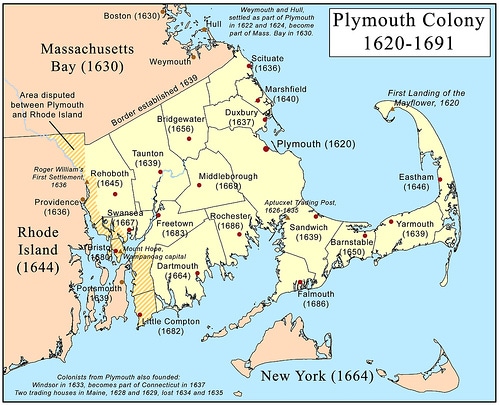
Plymouth Colony was the first and most famous colony of the New England Colonies.
Plymouth was founded by the Pilgrims in 1621 and was eventually absorbed by the much larger Massachusetts Bay Colony.
Although Plymouth was eventually absorbed, it is easily the most recognized colony due to the Pilgrims and the first Thanksgiving. It was also the site of the King Philip War.
Rhode Island Colony
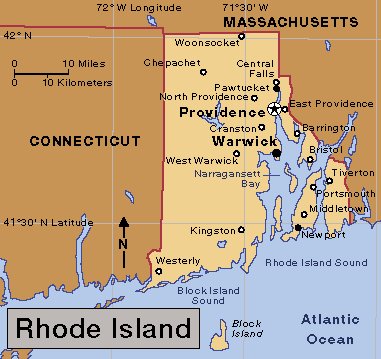
Rhode Island Colony was founded by Roger Williams, who was expelled from Massachusetts Bay for being too liberal.
It was the first of the New England Colonies to offer freedom of religion. It was also the colony that Anne Hutchinson fled to after she was expelled from Massachusetts.
Rhode Island is the home of one of the greatest tactical Generals in American History, Nathanael Greene. Also home to signers Stephen Hopkins and William Ellery.
